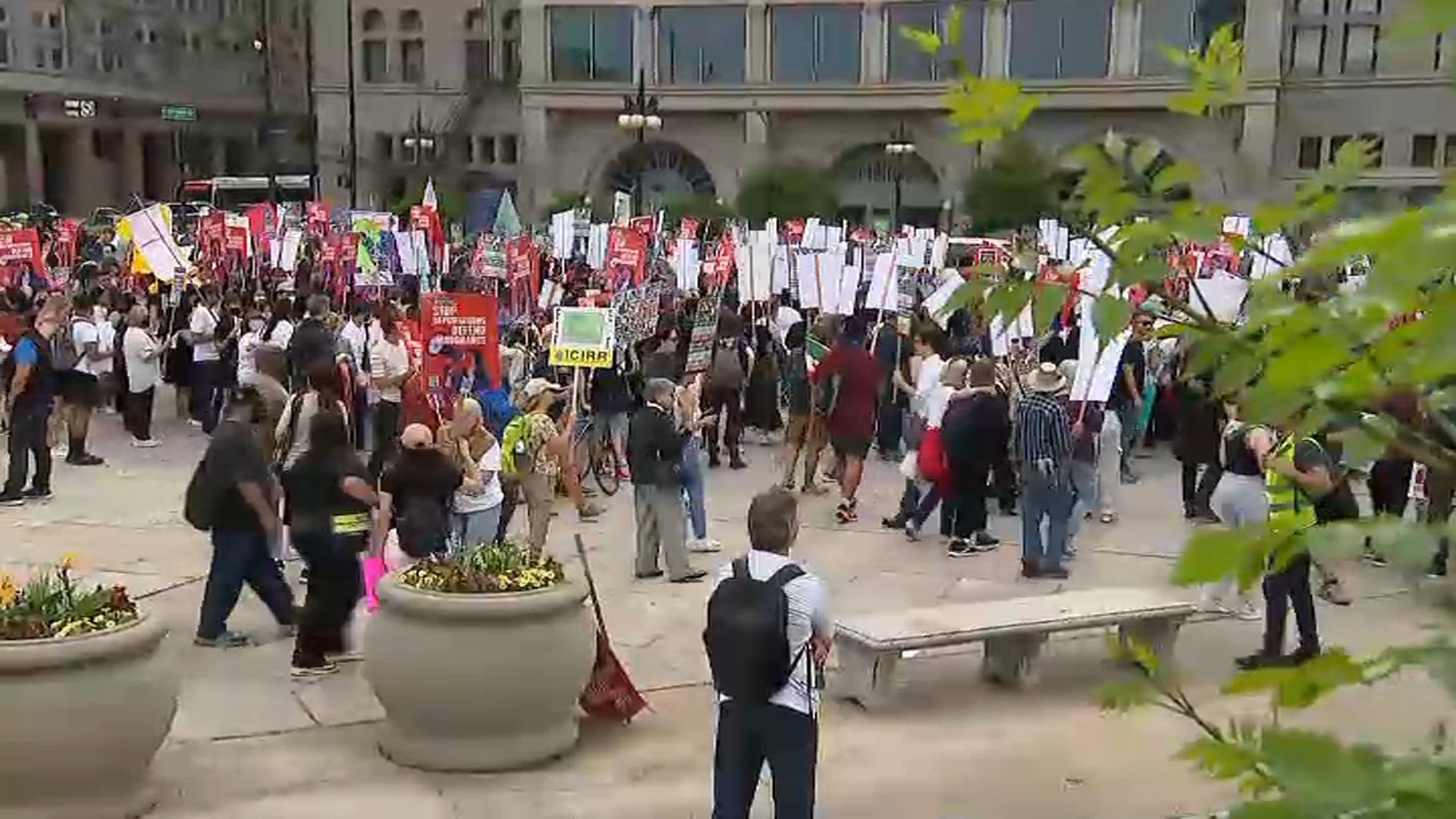Multiple Chicago suburbs have issued an urgent warning to parents about unsafe and "contaminated" tap water in the area, with potentially deadly effects if mixed with baby formula and consumed by infants under 6 months old.
In a drinking water alert sent Saturday by utility company Aqua Illinois, recent water sampling results collected in Kankakee showed nitrate levels of 11.9 milligrams per liter (mg/L). That's above the standard, maximum contaminant level of 10 mg/L.
Stream NBC 5 for free, 24/7, wherever you are.
Nitrate in drinking water is a "serious health concern" for infants less than 6 months old, the alert said, and could lead to blue baby syndrome, which could become fatal if not treated. Symptoms of blue baby syndrome can develop rapidly, the alert said, and include shortness of breath and blueness of the skin.
Unlike other water alerts, boiling, freezing or filtering the water will not reduce the nitrate levels, officials said. In some cases, doing so could make the contamination even worse.
"Excessive boiling can make the nitrates more concentrated because nitrates remain behind when the water evaporates," the alert said.
Water, juice, and formula for children under 6 months old should not be prepared with tap water, officials warned. Bottled water should be used for infants until further notice.
"Adults and children older than 6 months old can drink the tap water (nitrate is a concern for infants because they can’t process nitrates in the same way adults can)," the alert said. "However, if you are pregnant or have specific health concerns, you may wish to consult your doctor."
Local
Multiple suburbs are impacted by the alert, the utility said, including Kankakee, Bourbonnais, Aroma Park, Bradley, Grant Park, Limestone, Manteno, Peotone, University Park and other neighboring townships.
Nitrate in drinking water can come from natural, industrial or agricultural sources, including septic systems and runoff, officials said, and levels of nitrate in tape water can vary during the year.
Feeling out of the loop? We'll catch you up on the news you need to know with the Chicago Catch-Up newsletter.
In a Facebook post, the City of Kankakee said the high levels are due to the recent rains combined with the "runoff of spring agricultural fertilization."
"Recent heavy rains caused fertilizer from fields to runoff resulting in unprecedented levels of nitrates on the Kankakee River," the water utility said, which collects daily water samples. "We will continue to monitor the nitrate levels and update customers when levels have returned to normal."
University Park officials have expressed concerns about Aqua's handling of the community's water supply.
"They make the statement that it’s okay for people over 6 months of age to drink it. Well, that’s crap," Mayor Joseph Roudez III said. "And I wouldn’t drink it myself so I wouldn’t trust it at all. We know there was rain June 4, but we don’t have to suffer every time there's an excessive amount of rain. And at the end of the day Aqua has not been a good steward."
David Carter, who serves as president of the utility, said in response the company has been "working diligently to be good partners" to University Park and other communities.
He also said there's no timeline for nitrate levels to drop, but said river conditions have been improving. Customers will be notified when the advisory is lifted.
Bottled water was available starting Sunday, June 8 for families with infants between 12 p.m. and 7 p.m. in the following locations, Aqua Illinois said:
- 1000 S. Schuyler Ave., Kankakee, IL 60901
- 1737 E. Amberstone Rd., Manteno, IL 60950
- 24650 S Western Avenue, University Park, Il 60484



